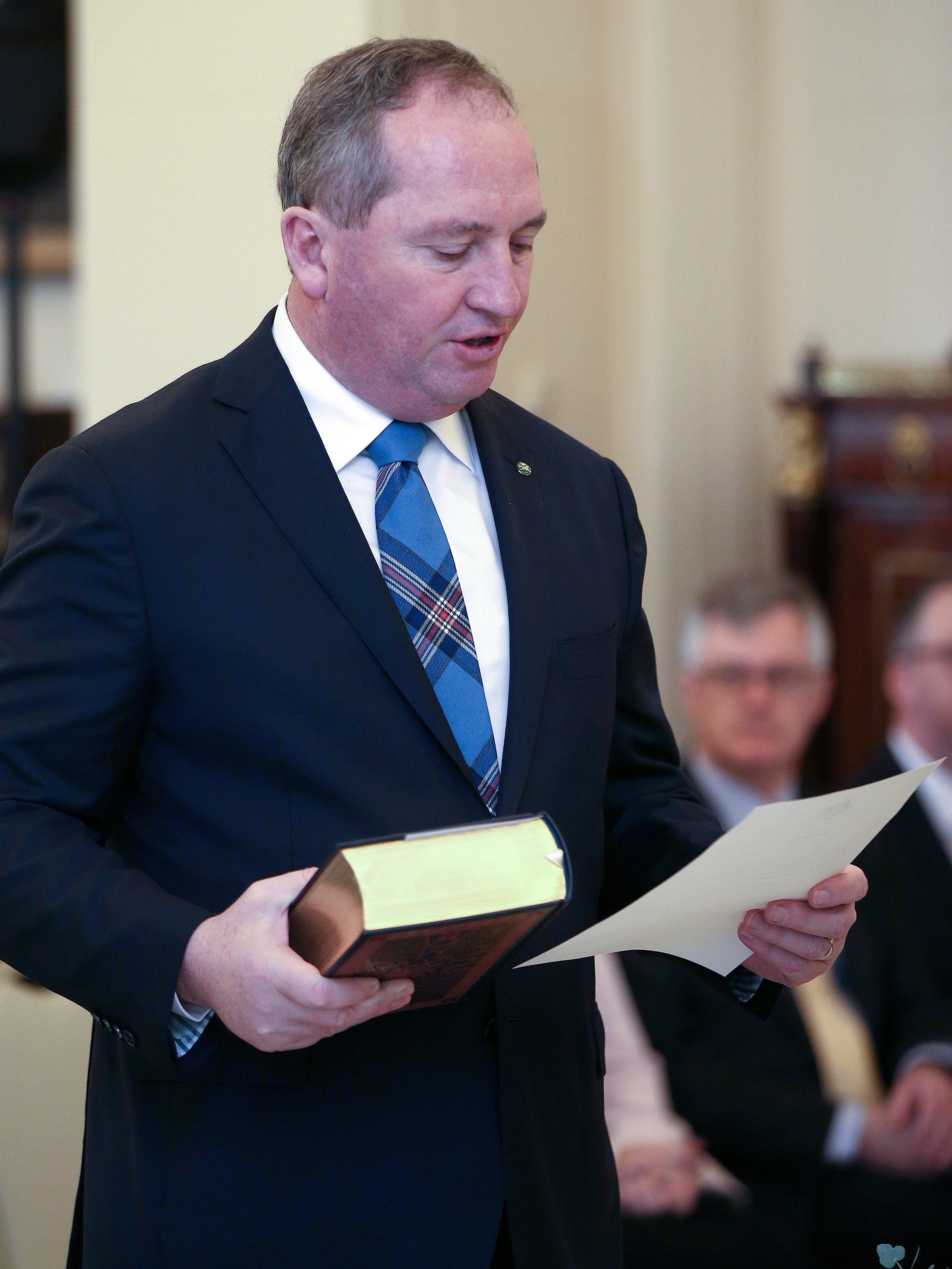Australia's deputy leader tests positive for virus in the US
Australia’s Deputy Prime Minister Barnaby Joyce says he’s tested positive for the coronavirus while traveling in Washington D

Your support helps us to tell the story
From reproductive rights to climate change to Big Tech, The Independent is on the ground when the story is developing. Whether it's investigating the financials of Elon Musk's pro-Trump PAC or producing our latest documentary, 'The A Word', which shines a light on the American women fighting for reproductive rights, we know how important it is to parse out the facts from the messaging.
At such a critical moment in US history, we need reporters on the ground. Your donation allows us to keep sending journalists to speak to both sides of the story.
The Independent is trusted by Americans across the entire political spectrum. And unlike many other quality news outlets, we choose not to lock Americans out of our reporting and analysis with paywalls. We believe quality journalism should be available to everyone, paid for by those who can afford it.
Your support makes all the difference.Australia s Deputy Prime Minister Barnaby Joyce said Thursday he'd tested positive for the coronavirus while traveling in Washington D.C.
Joyce, who is fully vaccinated, said in a Facebook post that he'd been experiencing mild symptoms and decided to get tested. He said he would remain in isolation while seeking further advice.
He said the remaining members of his traveling delegation had tested negative.
It wasn't immediately clear what variant of the virus Joyce had contracted. Before arriving in the U.S., he'd traveled to London and met with top officials there as part of a 10-day trip to discuss his government's plans for regulating social media.
Joyce told ABC Radio New England he was “very frustrated I’m going to be locked up in a room by myself for 10 days, but that’s part of the process.”
He joked that being alone in the room worried him more than his infection.
He told the radio station that part of his job involved traveling and meeting with counterparts.
"I really wanted to follow up on some of this online stuff, try to get better online protection laws and see where the United States are,” he said. “But that’s the way the cookie crumbles.”
Australia has been a prominent voice in calling for international regulation of the internet.
It passed laws this year that oblige Google and Facebook to pay for journalism. Australia also defied the tech companies by creating a law that could imprison social media executives if their platforms stream violent images.
Australia has also announced plans to crack down on online advertisers targeting children by making social media platforms seek parental consent for users younger than 16 years old or face hefty fines.